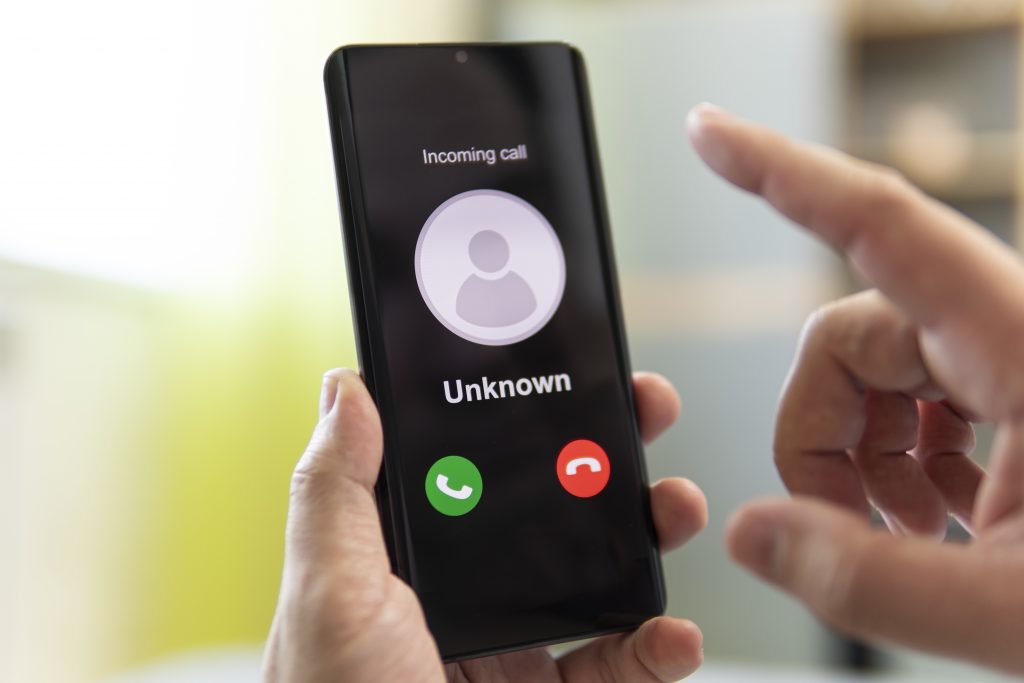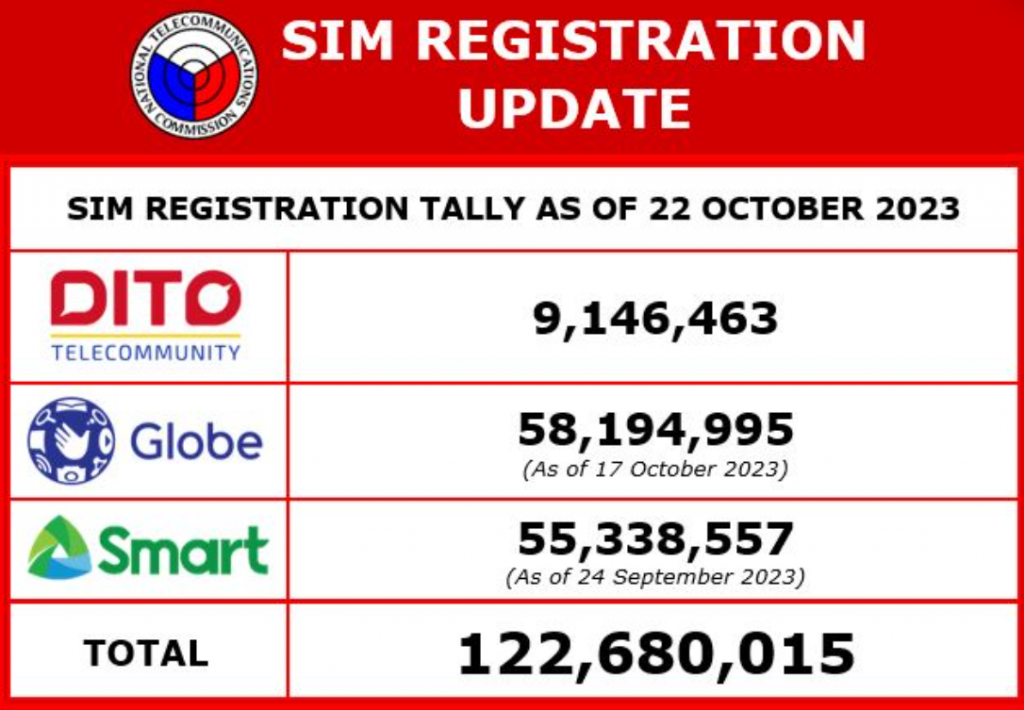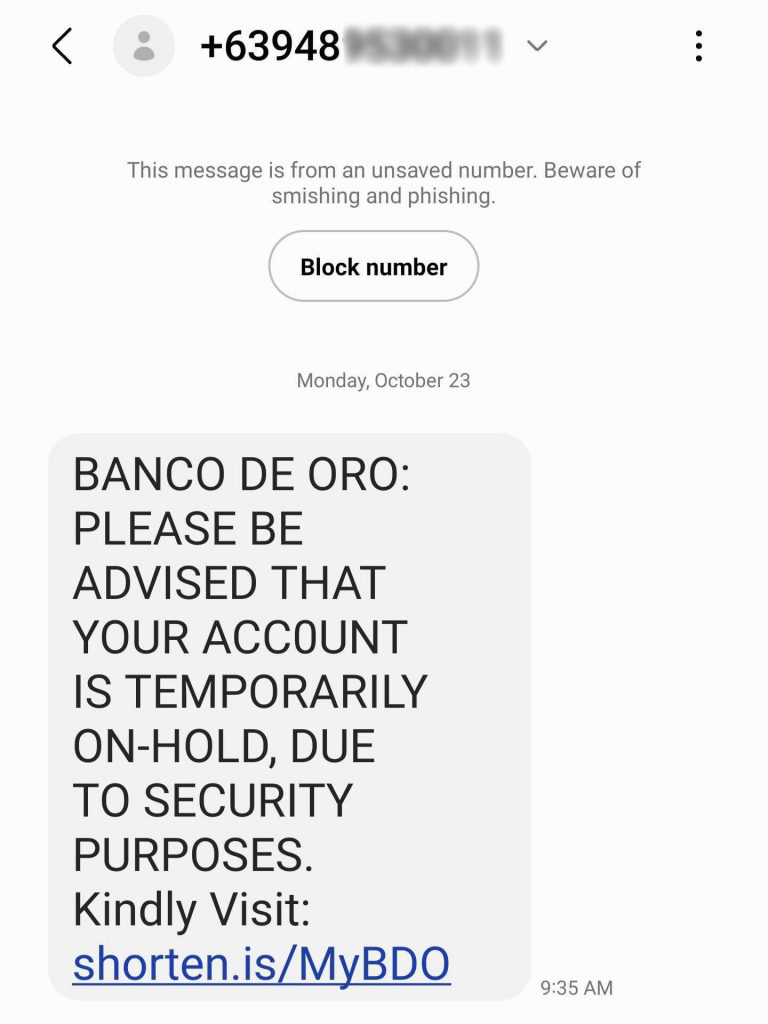As the SIM Card Registration Act was enacted in December 2022, it became mandatory to have all SIM cards new and old, registered. In hopes of alleviating the persistence of fraudulent activities made through calls and texts, the Philippine government sought to face the predicament head-on. Private citizens, business owners, and all individuals alike have been required to register their SIM cards to address the pressing issue of spam calls and texts in the Philippines. Would you agree that the issue has been addressed?
We provide a straightforward tutorial and further advice throughout this anti-spam guide to help you filter spam texts that make fraudulent claims about employment, incentives, vouchers, and additional revenue. Learn all about combating spam messages in the Philippines as you read through this article.

What is a Spam Call and Text?
Messages that are undesired and uninvited are referred to as spam. Spam calls and texts in the Philippines typically don’t originate from another smartphone. These messages and calls are transmitted to your mobile device through a web-based contact or instantaneous messaging account, which means they are primarily computer-generated. Hackers can send them cheaply and easily since they get delivered electronically.
What is inside a Spam Call and Text in the Philippines?
A portion of these are advertisements promoting uninvited products. Some spam communications have the ability to propagate malware, fool you into disclosing confidential data, or intimidate you into believing that you have to shell money. Common scam calls and texts in the Philippines include…
- Employment Opportunities (e.g., fast-money employment with high salary)
- Winning a Contest (e.g., “You won PHP 50M; click on the link to claim your prize.”)
- Missing Packages (e.g., “Your package is missing; click the link to claim.”
- Hacked Accounts (e.g., “Your bank account has been compromised. Send the OTP in response to this message.”)
- Wrong Deposit (“You have successfully sent PHP 5,000 to…”)
Sample Spam Message

How do people receive random spam texts in the Philippines?
It’s likely that another person is attempting to obtain your confidential data if you commence receiving spam texts. It’s imperative that you record and block the number or email address without answering.
Are there actions being taken to reduce spam texts in the Philippines?
Recently, a major telecommunications player published an announcement informing users that it will temporarily prohibit spam messages, including Uniform Resource Locators (URLs). This ensures that the internet addresses included in the text SMS are not interactive, leaving the sender’s message ineffective. This is a good option for Filipinos who are just frustrated when they receive an SMS carrying personal data, along with a suspicious link luring them to click on it, particularly if it offers fast cash.
What are Robo Calls?
The technique is known as “neighbor spoofing,” and it is the most recent caller ID spoof method employed by phone scammers to entice consumers into picking up the line. At the same time, robocalls are phone calls that contain pre-recorded material.
Calls like this have become more common over the past few years as innovation has rendered it inexpensive and easy for robocalls to initiate calls from all over the globe while concealing their real identities by showing deceptive caller identity credentials.
Avoiding Spam Calls in the Philippines
Government officials, especially the Philippine National Police, encourage Filipinos to be vigilant in spotting these robocalls and spam calls in the Philippines. To further attend to the pressing situation of rampant spam call bombardment, the PNP has issued a statement for individuals and businesses to take precautionary measures.
Government Recommendations
- Do not answer any questions, particularly those that may be replied with a simple “Yes” or “No.”
- If you receive the line and the individual calling – or an audio recording – urges you to press a button to discontinue receiving calls, simply hang up. Scammers frequently employ this technique to identify potential victims.
- Check with your phone carrier to see if they have any call-blocking options, and look into applications that you could add to your smartphone or tablet to prevent calls.
- Calls involving unknown numbers should not be answered. If you answer such a call, immediately hang up.
- In response to unusual callers or if you are wary of never revealing confidential data such as bank accounts, Social Security numbers, mother’s maiden names, login details, or other personal details.

What do you do when you receive spam calls/ texts in the Philippines?
Identify Spam Calls and Texts
Detecting spam communications is an initial move in safeguarding oneself, and there are several ways to do it. Some spam calls/texts in the Philippines have a set prompt that revolves around these ideas…
- The message you are receiving is absolutely random and has no relation to you.
- Loan or cash help offers
- A link will be linked to the message for you to click on.
- Spam communications frequently feature poor spelling and grammar, as well as bizarre message structure.
- They want private details such as bank accounts, PINs, passwords, and so on.
Here’s how spam messages may look like:


Do Not Respond
Engaging with spam calls or texts in the Philippines is one of the most crucial things you ought to refrain from, regardless of how irritating it becomes. Doing so will confirm to hackers the fact that your mobile device is currently turned on. In line with this, you might have your phone number getting traded and distributed to other fraudsters, resulting in even more unwanted messages being generated.
Refrain from Communicating with Spam Messages
Another thing to keep in mind is that many spammers may use a “Reply STOP to quit” phrase to persuade you to respond in the interest of ending their messages or “ask how” or “reply yes” to entice you to respond.
This merely informs them that your phone number is current and genuine. Unless you are quite certain that this communication is important to you, you are more beneficial not replying completely.
Avoid Clicking Links
This is undoubtedly the most critical step in avoiding being tricked by spam calls and texts in the Philippines. Phishing ranks as one of the most popular types of spam in the Philippines and is commonly referred to as “smishing.” This frequently takes the form of a shady employment offer, a loan offer, or even a message informing you that you have won a reward. They all have a single attribute in common: a hyperlink that you must visit.
Block Spam Numbers
Simply blocking these numbers is the easiest strategy to stop spam texts. When you identify an unsolicited message, blacklist the contact line. This will stop any further texts or calls from the blocked address from contacting you. Please keep in mind that several spammers may change contact information and continue to pester you. Remember to be alert in spotting, noting, and restricting these mobile phone numbers.
Report Spam Numbers to Your Mobile Network Provider
As technologies rapidly improve, fraudsters have grown increasingly devious in their attempts to defraud consumers. As a result, the majority of mobile network service providers continue to use methods to report and ban these fraudsters. Reporting spam communications to the carrier you use helps safeguard not just yourself but also other people by eliminating potential fraud. You may also report directly to the National Telecommunications Commission (NTC).

In a nutshell, spam calls and texts can be disruptive for individuals and businesses who fall victim to these schemes. It renders them easy prey for these fraudulent activities. Your greatest weapons against their illicit objectives include refraining from responding and notifying them to your local network operator. As you continue to use your devices in everyday life, ensure that you take precautions against spam calls and texts in the Philippines.





